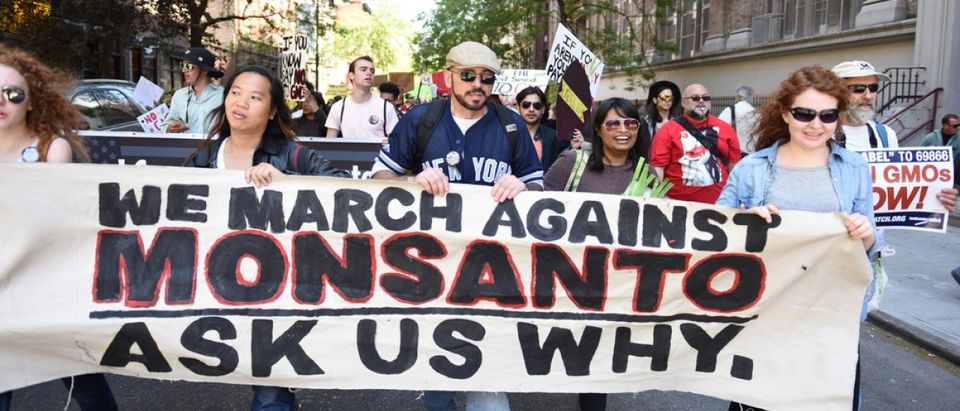Environmental Protection Agency (EPA) officials were quick to take off the internet a report debunking claims made by activists and United Nations officials that the chemical compound used to kill weeds is cancer causing.
EPA pulled the report by their cancer assessment review committee, or CARC, after it had been “inadvertently” published online Friday, the agency told Reuters. EPA said the CARC report was “not final” and subsequent steps of review were needed before it could be published online. It was taken offline Monday afternoon.
CARC’s report, however, has already caused an uproar among environmentalists who want to see the chemical glyphosate, commonly found in weed killers and fertilizers, banned. Activists commonly cite a 2015 report by the United Nations’ International Agency for Research on Cancer, or IARC, classified glyphosate as “probably carcinogenic in humans.”
The CARC study ripped offline by EPA, however, rebutted IARC’s conclusions, saying they were based on flawed studies, some of which weren’t even reproduced by other scientists. CARC ultimately ruled glyphosate is “not likely to be carcinogenic in humans.”
“The studies that IARC cited as positive findings for chromosomal damage had deficiencies in the design and/or conduct of the studies confounding the interpretation of the results,” CARC reported, according to a copy of their assessment obtained by The Daily Caller News Foundation.
“In addition these positive findings were not reproduced in other guideline or guideline-like studies evaluating the same endpoints,” CARC reported.
IARC’s assessment of glyphosate also omitted four studies showing a negative association between glyphosate and cancer. CARC called them out.
“This omission of the negative findings from reliable studies may have had a significant bearing on the conclusion drawn for evidence of carcinogenicity in animals,” CARC reported.
Environmentalists were quick to react to the leaked EPA report, saying CARC’s findings were biased because the group relied on industry-funded studies.
“EPA’s determination that glyphosate is non-carcinogenic is disappointing, but not terribly surprising — industry has been manipulating this process for years,” Nathan Donley, a scientist at the Center for Biological Diversity, said in a statement. “The analysis done by the World Health Organization is more open and transparent and remains the gold standard.”
EPA’s CARC, however, is the third regulatory body to rule glyphosate is not a carcinogen since IARC released its findings in March 2015. The European Food Safety Authority, for example, ruled in November 2015 that glyphosate was “unlikely to pose a carcinogenic hazard to humans.”
“No pesticide regulator in the world considers glyphosate to be a carcinogen, and this conclusion by the U.S. EPA once again reinforces this important fact,” Hugh Grant, chairman and CEO of the agriculture and chemical giant Monsanto, said in a statement. “Glyphosate has a 40-year history of safe and effective use.”
“Unfortunately, last year’s inconsistent classification by IARC generated unwarranted concern and confusion about this important agricultural tool,” Grant said. “This rigorous assessment of the data by EPA builds on the sound conclusions of both the European and Canadian regulatory authorities and once again makes it clear that glyphosate does not cause cancer.”
Glyphosate is a herbicide commonly found in the weed killer Roundup — a product of Monsanto. Roundup allows farmers kill weeds without harming their crops. It’s also found in fertilizers used by farmers around the country.
Environmentalists have been trying to ban glyphosate for years, saying it poses a health risk to humans and animals. Many of these same environmentalists oppose genetically modified crops, or GMOs — another product of Monsanto.
“We shouldn’t gamble with the risk of cancer and must take appropriate precautions until we get a conclusive answer about the true dangers of glyphosate,” Donley said. “The indiscriminate drenching of farms, ball fields and backyards with glyphosate needs to end.”
Follow Michael on Facebook and Twitter
All content created by the Daily Caller News Foundation, an independent and nonpartisan newswire service, is available without charge to any legitimate news publisher that can provide a large audience. All republished articles must include our logo, our reporter’s byline and their DCNF affiliation. For any questions about our guidelines or partnering with us, please contact licensing@dailycallernewsfoundation.org.


